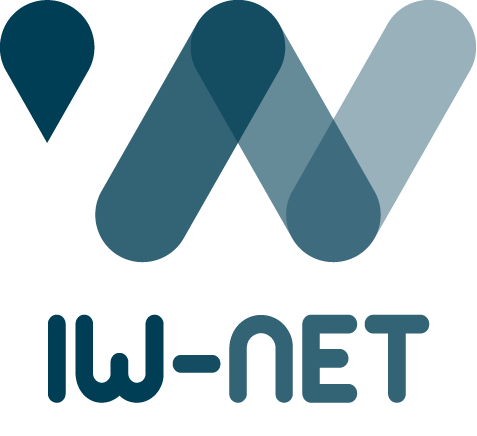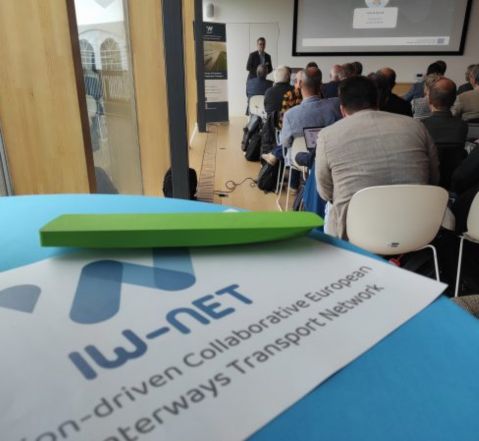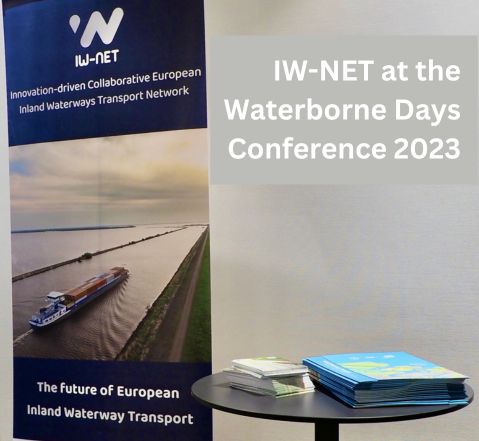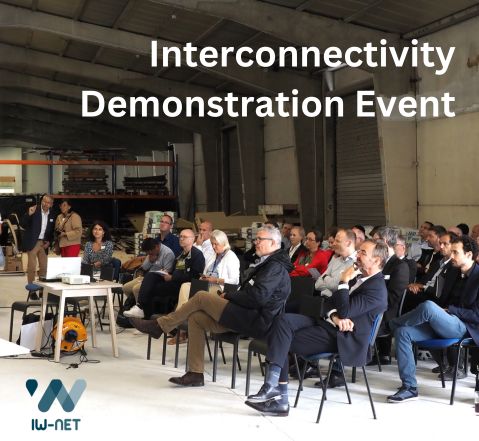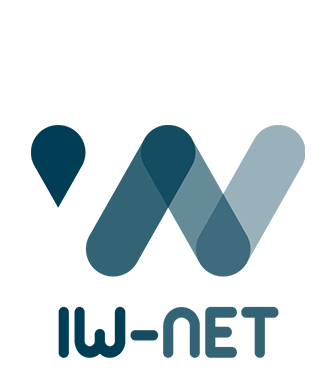
IW-Net Project
About the IW-NET project
IW-NET (Innovation-driven Collaborative European Inland Waterways Transport Network) is funded in H2020 under Grant Agreement No. 861377. The project started in May 2020 and is running until October 2023. It aims at improving the efficiency, competitiveness, and reliability of European Inland Waterway Transport (IWT), addressing IWT operations in different regions all over Europe – in particular rivers Danube, Spree/Oder and Weser, and the regions of Brussels and Ghent.
Read More
The MSEs address various aspects of the IWT business model, including sustainable cooperation between suppliers and consumers of IWT services, data-driven collaborative optimization of IWT operations, improved navigability under variable conditions with innovative vessel designs, collaborative berth planning and shore power utilization, advanced location accuracies via GALILEO services, and innovative IW fleet for urban distribution, including autonomous navigation and platooning.
IW-NET develops cloud-deployed, flexible, and low-cost solutions for improving the accuracy, reliability, resilience, responsiveness, adaptability, and agility of IWT processes. These enablers are initially studied by simulation and subsequently specified and represented in an IWT Innovation Framework.
IW-NET provides an innovative approach to improving inland navigation in Europe. By addressing key challenges and leveraging emerging technologies, the project has the potential to significantly enhance the efficiency, competitiveness, and sustainability of IWT services. It fosters a modal shift towards IWT as a sustainable transport mode and thus supports the EC’s ambitions to reduce CO2 emissions from logistics operations. Furthermore, it facilitates smooth and efficient integration of IWT in multimodal transport chains, and improves the IWT chains’ resilience.
Objective
IW-NET will deliver a multimodal optimisation process across the EU Transport System, increasing the modal share of IWT and supporting the EC’s ambitions to reduce transport GHG emissions by two thirds by 2050. Enablers for sustainable infrastructure management and innovative vessels will support an efficient and competitive IWT sector by addressing infrastructure bottlenecks, insufficient IT integration along the chain and slow adoption of technologies, such as new vessel types, alternative fuels, automation, IoT, machine learning.
Read More
1) Digitalisation: optimised planning of barge operations serving dense urban areas with predictive demand routing (Brussels-Antwerp-Courtrai-Lille-Valenciennes); data driven optimisation on navigability in uncertain water conditions (Danube).
2) Sustainable Infrastructure and Intelligent Traffic Management: lock forecasting to reduce uncertainty in voyage planning; lock planning; management of fairway sections where encounters are prohibited; berth planning with mandatory shore power supply and other services (hinterland of Bremerhaven via Weser/Mittelland Canal).
3) Innovative vessels: new barge designs that fit corridor conditions and target markets: barges with a high degree of automation for urban distribution (East Flanders-Ghent); new barge for push boats capable with low/high water levels optimising capacities (Danube from Austria to Romania); use of GALILEO services for advanced driver assistance like guidance, bridge height warning and automatic lock entering (Spree-Oder waterway close to Berlin).
Accompanying activities are stakeholder engagement, capacity building, and a delivery of the European IWT development roadmap with policy recommendations for increasing the IWT share.
Project information:
Grant agreement ID: 861377
Start-end date: 1 May 2020 – 30 April 2023
- Funded under – H2020-EU.3.4
Overall budget – € 8 302 733,75
EU contribution – € 8 302 733,75 - Coordinated by the Institut fur Seeverkehrswirtschaft und Logistik (Germany)
IW-NET news
Innovations in IWT: IW-NET Final Event
On 12 October 2023, the North Sea Port Visitor Centre in Ghent hosted the Final Event of the IW-NET project. With around 70 industry professionals attending the event, the day was dedicated to discussing Read More
IW-NET at the Waterborne Days Conference 2023
26-27 September marked significant days in the waterborne transport community's calendar as stakeholders convened in Brussels for the Waterborne Days Conference 2023. With a dynamic backdrop of collaborative dialogues, in-depth research revelations, and robust Read More
IW-NET Interconnectivity Event: A Leap Towards Sustainable Urban Delivery
Inland Waterway Transport took centre stage at the recent IW-NET Interconnectivity Event, held at the Brussels Construction Consolidation Centre (BCCC) on August 31, 2023. With over 70 registrations, this event underscored the growing interest Read More
